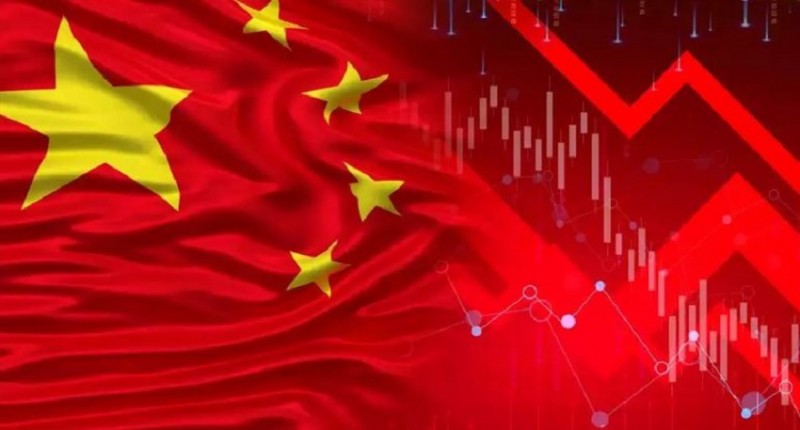
China ETFs Experience Continued Outflows Amid Economic Concerns and Political Uncertainty, Outflows from China ETFs Persist for Sixth Week Straight.
The trend of outflows from US exchange-traded funds (ETFs) focusing on Chinese equities has continued for a sixth consecutive week. This comes as investors react to weaker economic data and the implications of a possible victory by former President Donald Trump in the upcoming election. The situation was further aggravated by a recent assassination attempt on Trump.
Last week, China’s ETF market saw net outflows of $229.4 million. Among the hardest hit were the KraneShares CSI China Internet fund, which experienced outflows of $122 million, the Xtrackers Harvest CSI 300 China A-Shares ETF with $53.62 million, and the iShares China Large-Cap ETF with $32.36 million.
Economic Data Falls Short of Expectations
In recent weeks, China's economic data has consistently underperformed expectations, causing investors to remain cautious about the country's economic future. Key indicators such as inflation, trade, and credit data released last week have negatively impacted market sentiment. Additionally, GDP growth for the last quarter was the slowest in five quarters, and home prices continued to decline in June. These developments have increased pressure on Chinese policymakers to implement supportive measures during this week’s Third Plenum in Beijing.
Political Uncertainty Adds to Investor Concerns
Investor anxiety has also been heightened by the increasing likelihood of Donald Trump winning the November presidential election. A failed assassination attempt on Trump over the weekend has only intensified concerns. Market analysts fear that a Trump victory could lead to stricter policies and increased tariffs against China.
Nenad Dinic, an equity strategist at Bank Julius Baer & Co. Ltd., stated, “The outlook has been further complicated by the increasing possibility of a Trump victory, resulting in investors reevaluating the potential impact of tariff hikes on China’s growth.”
Dinic added that potential risks include a decline in exports, depreciation of the renminbi against the US dollar, and doubts about the effectiveness of policy measures to counteract the negative effects of increased tariffs. These risks could worsen if Trump follows through on threats to raise tariffs on Chinese imports if reelected.
Mixed Performance in Emerging Markets
Beyond China, there was a modest outflow across emerging markets, amounting to $4.31 million for the week ending July 12. This is a sharp contrast to the inflows of $272.2 million recorded the previous week, according to Bloomberg data. Year-to-date inflows for emerging markets have totaled $9.17 billion.
Latin America Sees Positive Inflows
A bright spot in the ETF market was Latin America. The iShares Latin America 40 ETF reported $59.7 million in inflows on Friday, marking the highest daily inflow in over two years.
Overall, stock ETFs saw a contraction of $83.4 million, while bond funds increased by $79.1 million. Total assets rose to $361.3 billion from $355 billion. The MSCI Emerging Markets Index closed up 1.7 percent from the previous week, reaching 1,123.56 points.
Regional Performance Highlights
China/Hong Kong: The region experienced the largest outflow, totaling $229.4 million, primarily due to withdrawals from the KraneShares CSI China Internet fund.
India: In contrast, India recorded the largest inflow of $142.4 million, led by the WisdomTree India Earnings Fund.
Latest Updates: